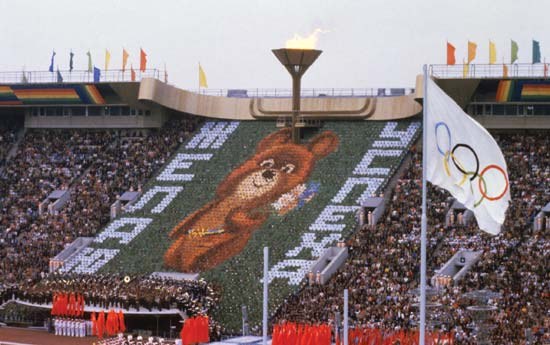How the Olympic Games were held in Moscow
How the Olympic Games were held in Moscow
In 1980, the Olympic Games were firstheld on the territory of the Soviet Union - in Moscow. This decision of the International Olympic Committee caused serious controversy and eventually led to a split in the Olympic movement.

The decision to hold the Olympics in Moscow waswas adopted back in 1974. These games were supposed to be the first organized on the territory of a socialist state. However, political confrontation has not been avoided. In 1979, the Soviet Union brought its troops into Afghanistan, which became the official reason for declaring a boycott of games by the United States. In reality, the confrontation between the USSR and the US had deeper roots and was not confined to the framework of the Afghan war. According to the US example, another 64 countries boycotted the game. They were mostly NATO countries, such as Turkey, Germany, Japan and others. Several European national teams were present, but in a shortened composition and under the Olympic, and not the national flag. The 80 teams participated in the Olympic Games in Moscow. States such as Jordan, Mozambique, Laos, Angola, Botswana and the Seychelles, first sent their athletes to the games. The opening and closing ceremonies were very well organized. Was bet on live pictures. For example, many people on one of the stands could represent the symbol of the 1980 Olympics - the bear. Numerous art collectives, famous Soviet athletes of past years and even cosmonauts took part in the opening of the games. The Soviet Union took the first place in the unofficial medal standings. This was understandable, since its main rival - the US team - boycotted the games. Soviet weightlifters, gymnasts, swimmers and wrestlers received the most medals. Also, the men's basketball team received gold medals. The second was the GDR team, traditionally showing a high level of training athletes at the Olympic Games. The Germans became unconditional leaders in rowing and swimming. A few medals were given to German gymnasts and cyclists.







